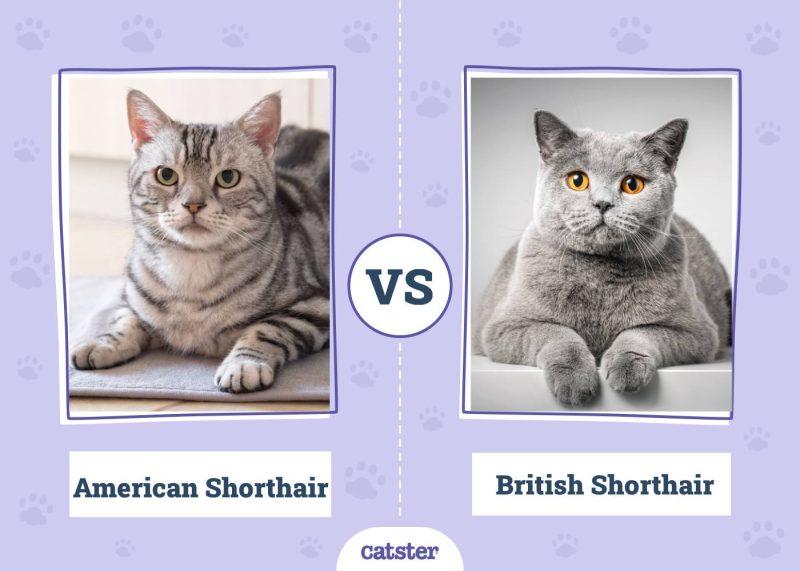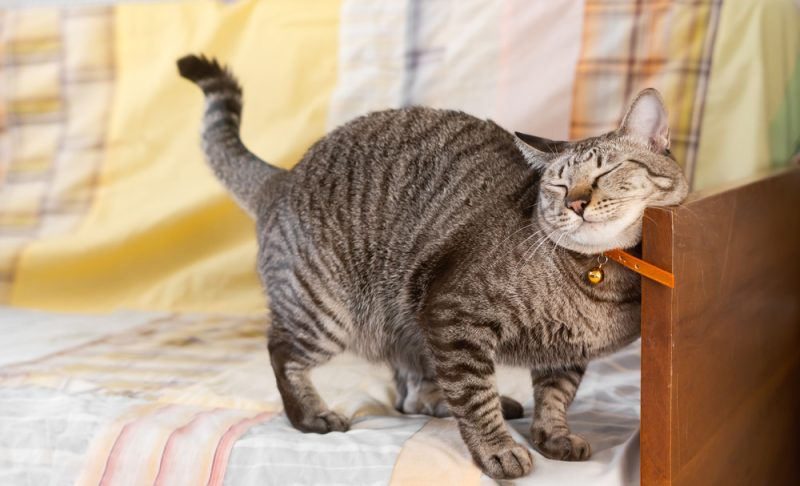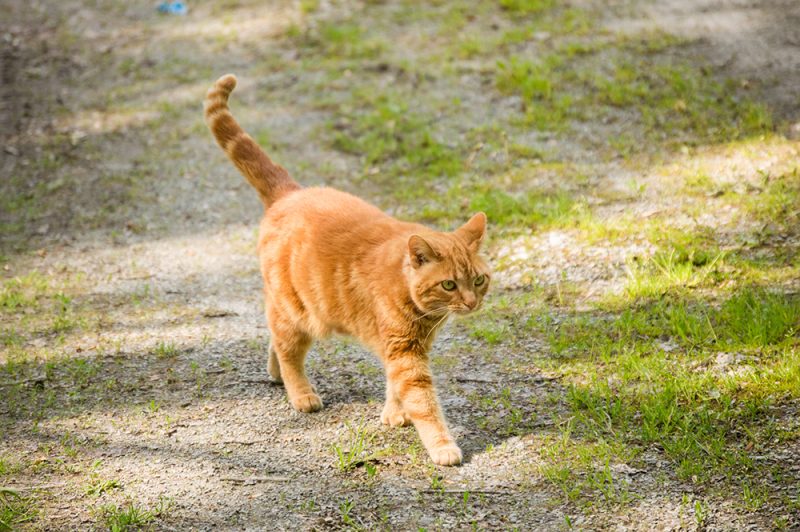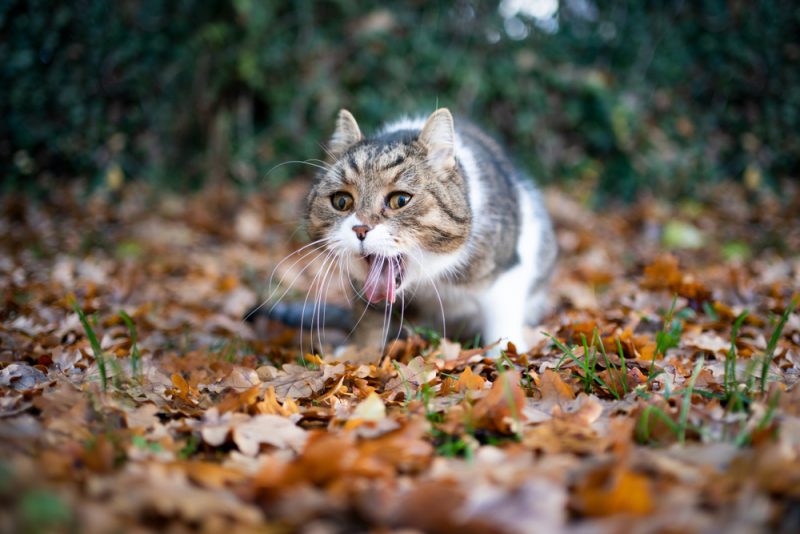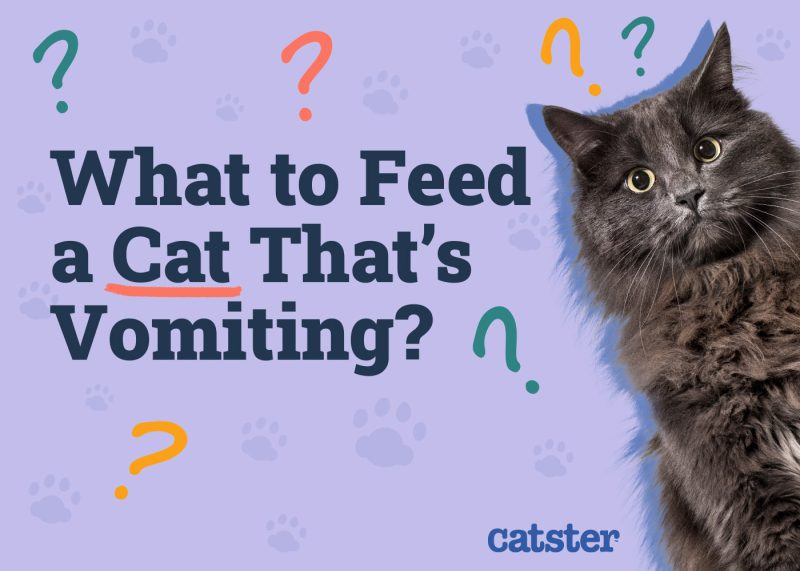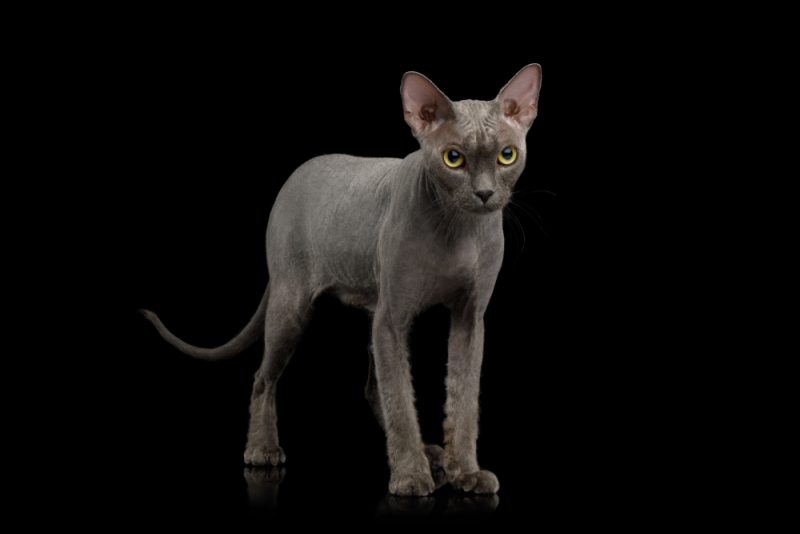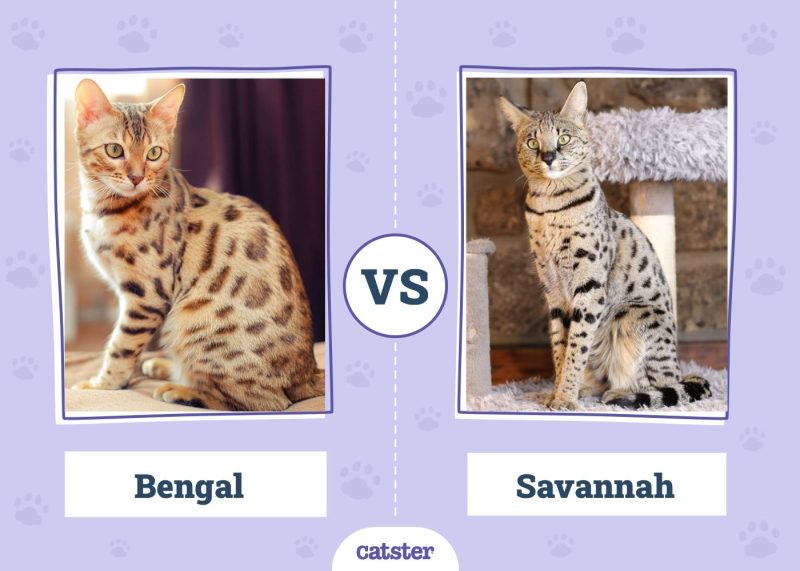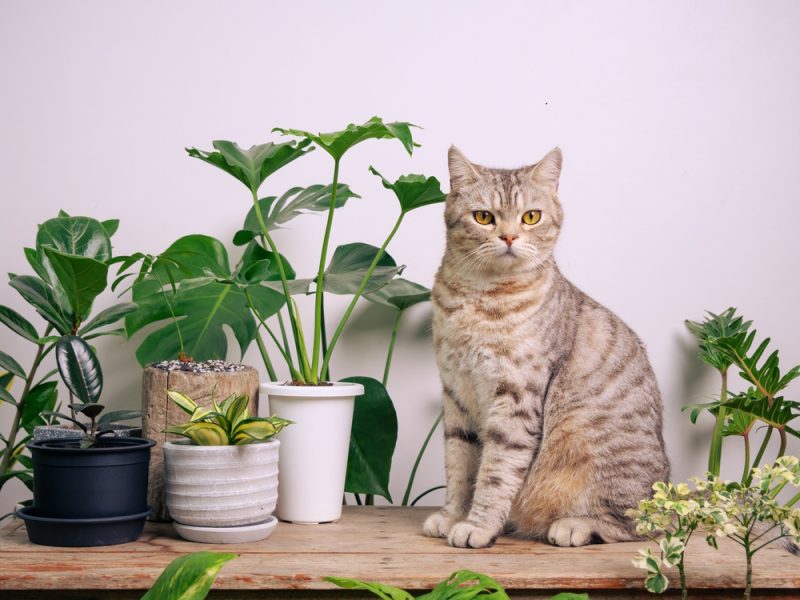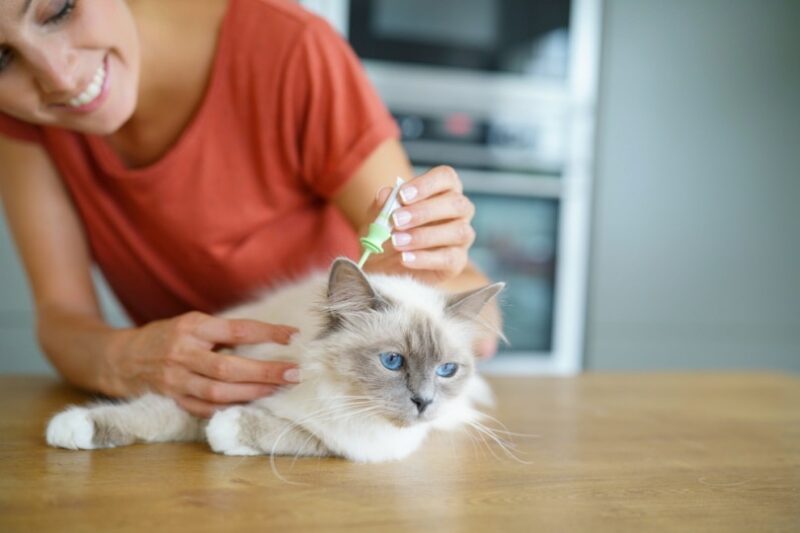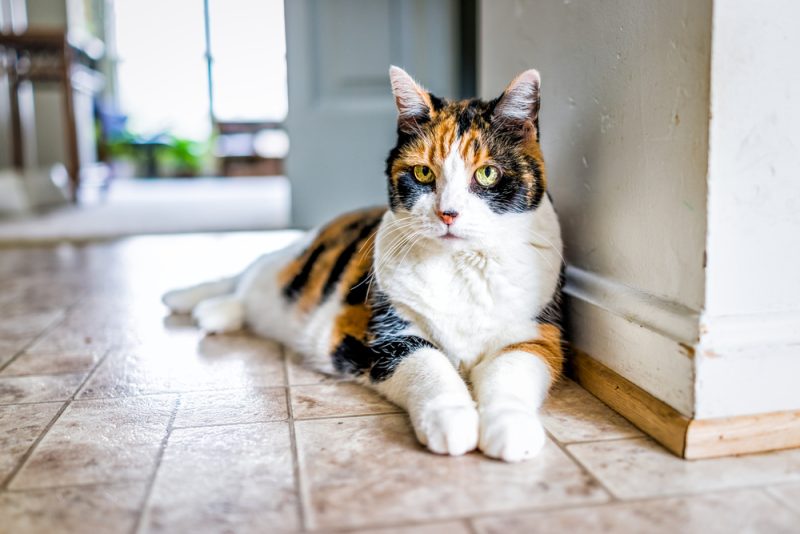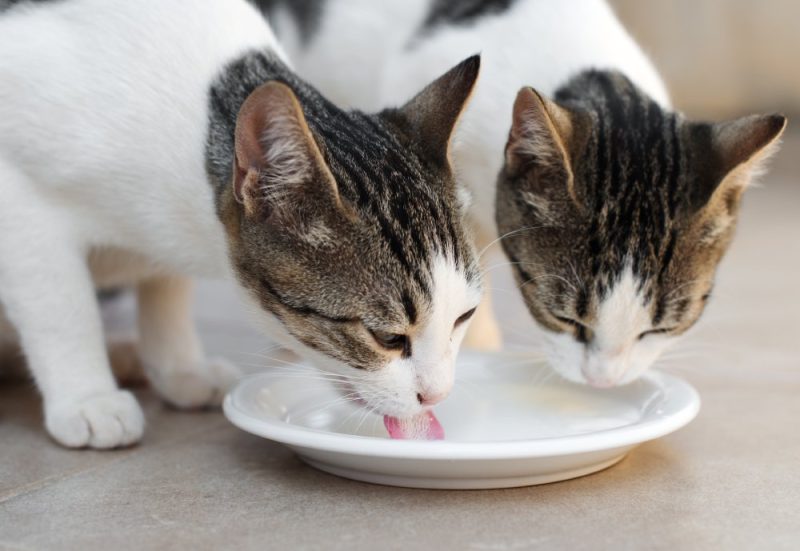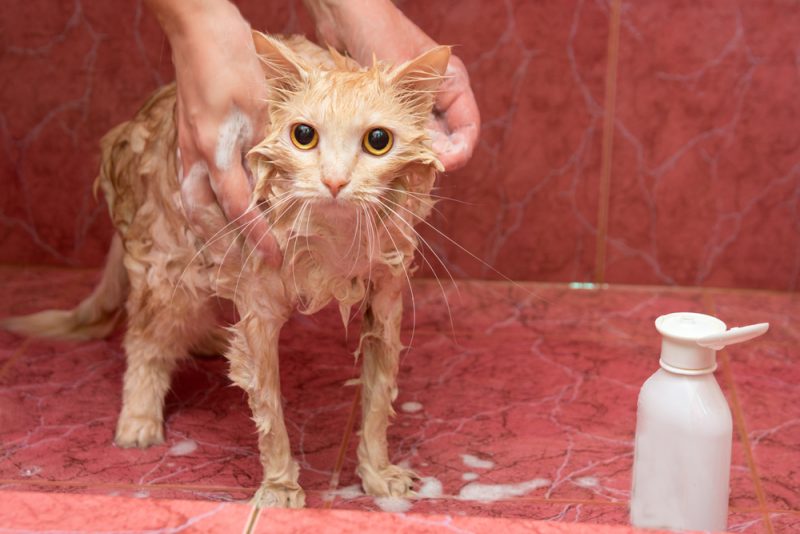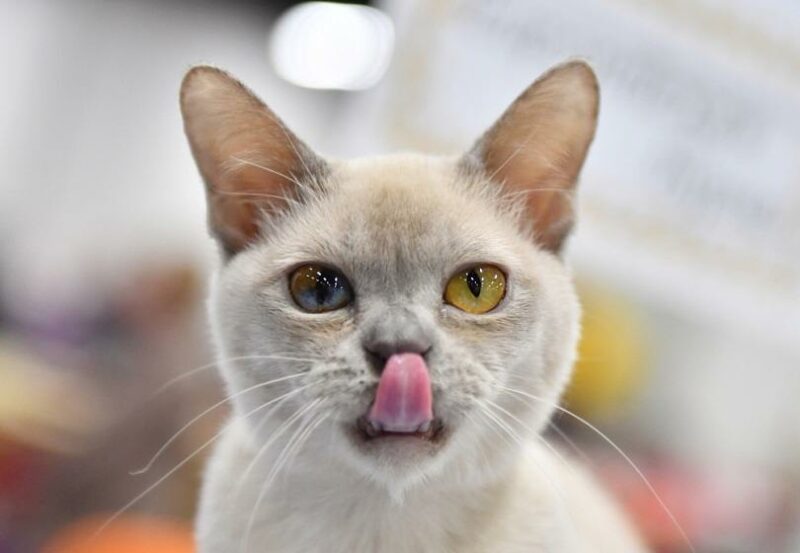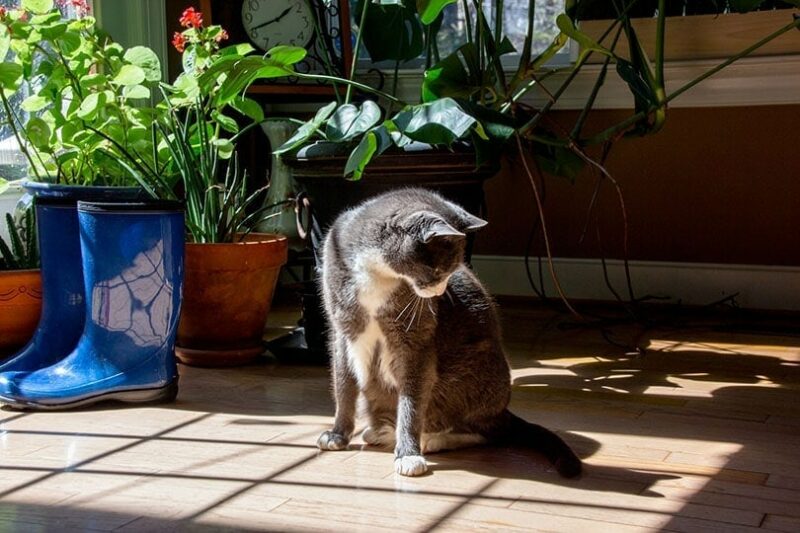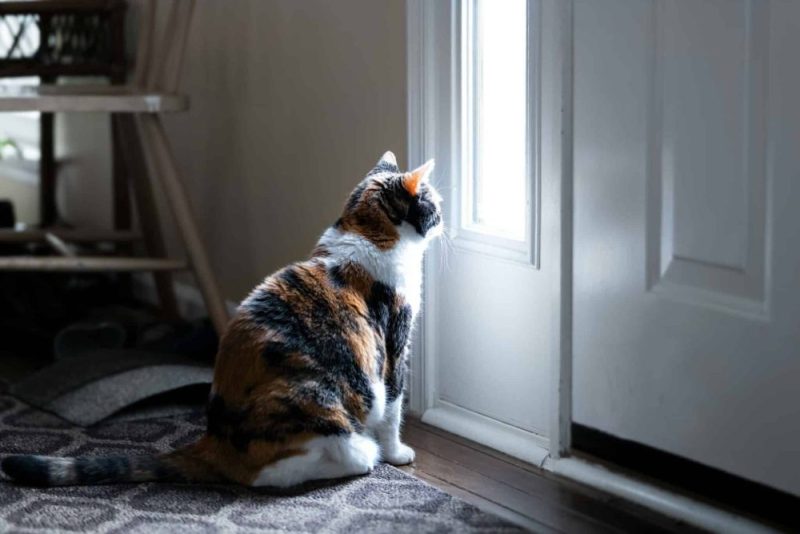In this article
Although their names are very similar, there are distinct differences between the American Shorthair and the British Shorthair. The British Shorthair is a devoted and loving cat but is not a lap cat, preferring to be the one that initiates contact and is content to stay in the background. They aren’t silly or dramatic, and they make good house pets. They do not usually require much exercise, either.
The American Shorthair is often considered more of a working cat than a house cat. They can control a mouse or rat population effectively, and although they can get with other house pets, they may threaten mice, hamsters, and other small critters. The American Shorthair can be left alone for relatively long periods without the need for human attention. This makes them a good choice for owners who work all day.

Visual Differences
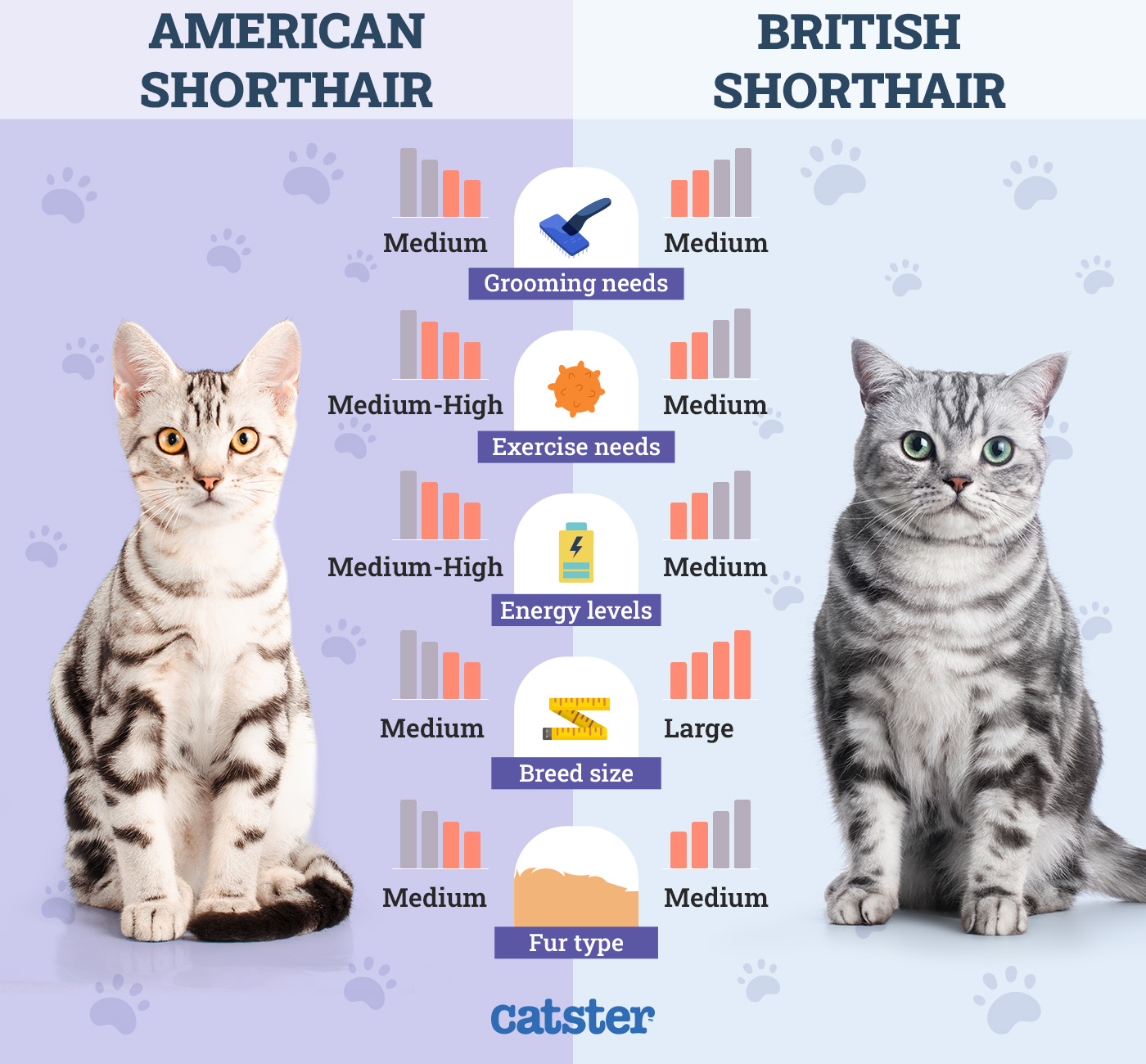
At a Glance
- Average height (adult): 8–10 inches
- Average weight (adult): 10-15 pounds
- Lifespan: 15–20 years
- Exercise: Medium
- Grooming needs: Minimal
- Family-friendly: Yes
- Other pet-friendly: Mostly
- Trainability: Calm and capable of learning
- Average height (adult): 12–14 inches
- Average weight (adult): 7–17 pounds
- Lifespan: 14–18 years
- Exercise: Medium
- Grooming needs: Minimal
- Family-friendly: Yes
- Other pet-friendly: Usually
- Trainability: Intelligent, likes to be occupied

American Shorthair Cat Overview
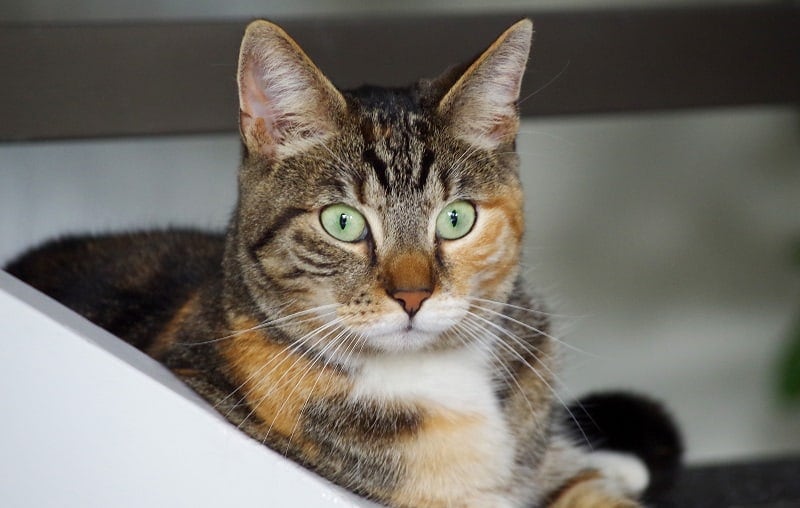
The American Shorthair cat is considered a medium breed but is muscular and strong and has a rounded appearance. Their appearance stems from the fact that they were initially used to keep mice and rats out of houses and other buildings. Their dense coat becomes thicker during winter, another nod to a history that would have seen them spending a lot of time outdoors and in cold cellars and warehouses.
The American Shorthair likely originates from European cats that would have been brought to the United States, initially protecting grain and food on ships and then performing the same task in cellars and homes. The first recorded breeding of this breed took place in 1904, and the British Shorthair, called a Domestic Shorthair at the time, was listed as one of the parent breeds.
Personality/Character
The American Shorthair is a friendly and pleasant cat. They make a good companion and aren’t very energetic, but it is essential to remember that they were bred to control vermin rodent populations, and they will have a keen interest in any small pets in your home.
They enjoy playing, but they won’t demand it all day long, and they often play alone when no human is around. They can be left for several hours while you go out to work or are away from the house for any other reason.
Although friendly and moderately affectionate, the American Shorthair is not overly needy. Your Shorthair may want to spend some time on your lap but will be just as happy laying in the sun in the same room as you.
Health & Care
The breed is known for being hardy and healthy, and they have a long lifespan of around 20 years. They need regular brushing, but their coat is not especially prone to matting or knotting. They’re susceptible to joint dysplasia and hypertrophic cardiomyopathy, which is the most common feline heart issue.
Possibly, the biggest health problem that needs to be monitored with this breed is their weight. In particular, you must ensure that the American Shorthair gets adequate exercise to maintain a healthy weight.
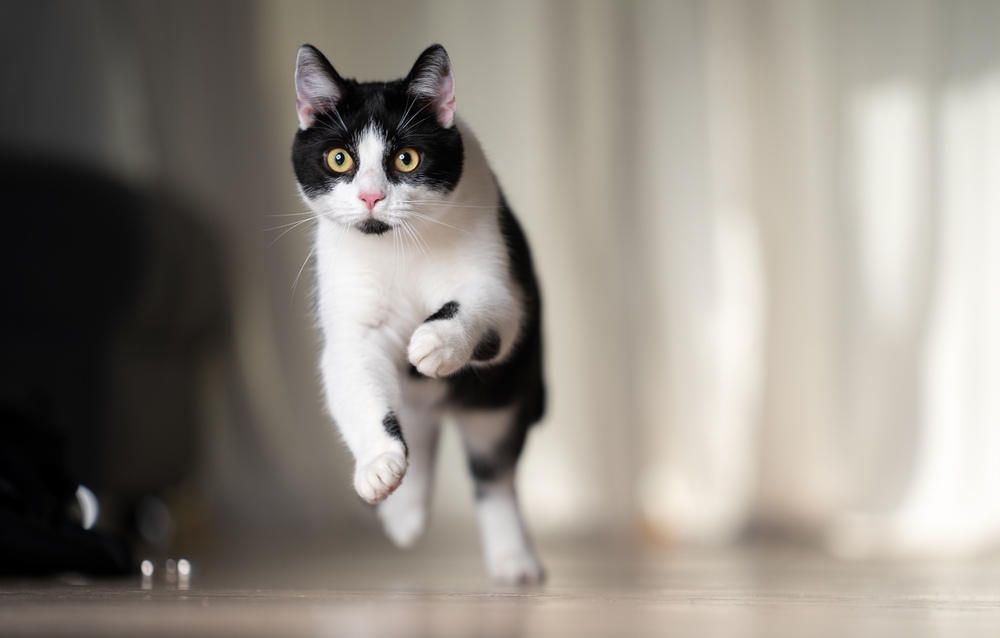
Suitable for:
The American Shorthair makes a great companion pet, especially for those who don’t want an overly clingy cat but a feline companion that is still happy to receive attention occasionally. They can be left alone and are suitable for working pet parents. They are also highly accomplished mouse and rat catchers, so they can be used to control pests.

British Shorthair Cat Overview
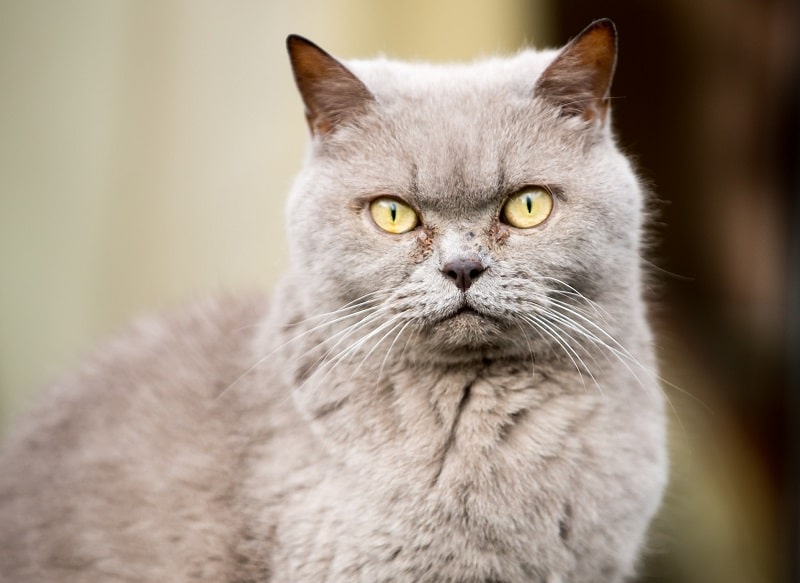
The British Shorthair was once known as the Domestic Shorthair. It originated in Britain and was likely brought over by settlers to control mouse and rat numbers. They are considered very friendly, but they rarely like being picked up and cuddled like some of the more affectionate breeds.
The British Shorthair is smaller than their American counterpart. They tend to be relatively slender and have a silvery blue coat that is soft to the touch but easy to look after. This coat is why the breed is also called the British Blue.
Personality/Character
The British Shorthair cat is loving and devoted to their humans. They will show affection, but in their own way, because they are not usually keen on being picked up and cuddled.
They may rub against your leg or hand as a sign of appreciation and enjoy being stroked, but they will be just as happy to vocalize their affection from the other end of the sofa. They aren’t overly energetic and don’t usually have high exercise demands or play requirements.
Health & Care
Like the American Shorthair, the British Shorthair is considered a healthy and hardy breed. They have a life expectancy of around 17 years, and, like their American counterpart, they are not known to be susceptible to any breed-related hereditary illnesses.
However, they can suffer from joint dysplasia and hypertrophic cardiomyopathy. The British Blue does not require much care but will benefit from daily or regular brushing to keep their coat in top condition.
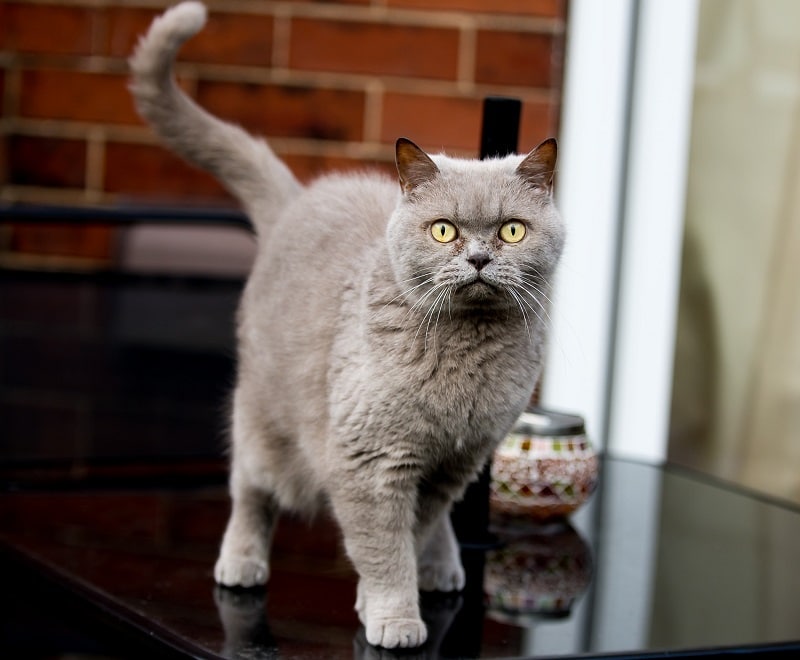
Suitable for:
The British Shorthair can be left alone for a few hours and is not as prone to obesity and being overweight as the American Shorthair. They are just as affectionate, but they prefer their affection at a distance and will be the ones to instigate any contact. They are suitable for almost any family but are many generations away from their rodent control ancestors, so they are not as ideal as working cats.

Which Breed is Right for You?
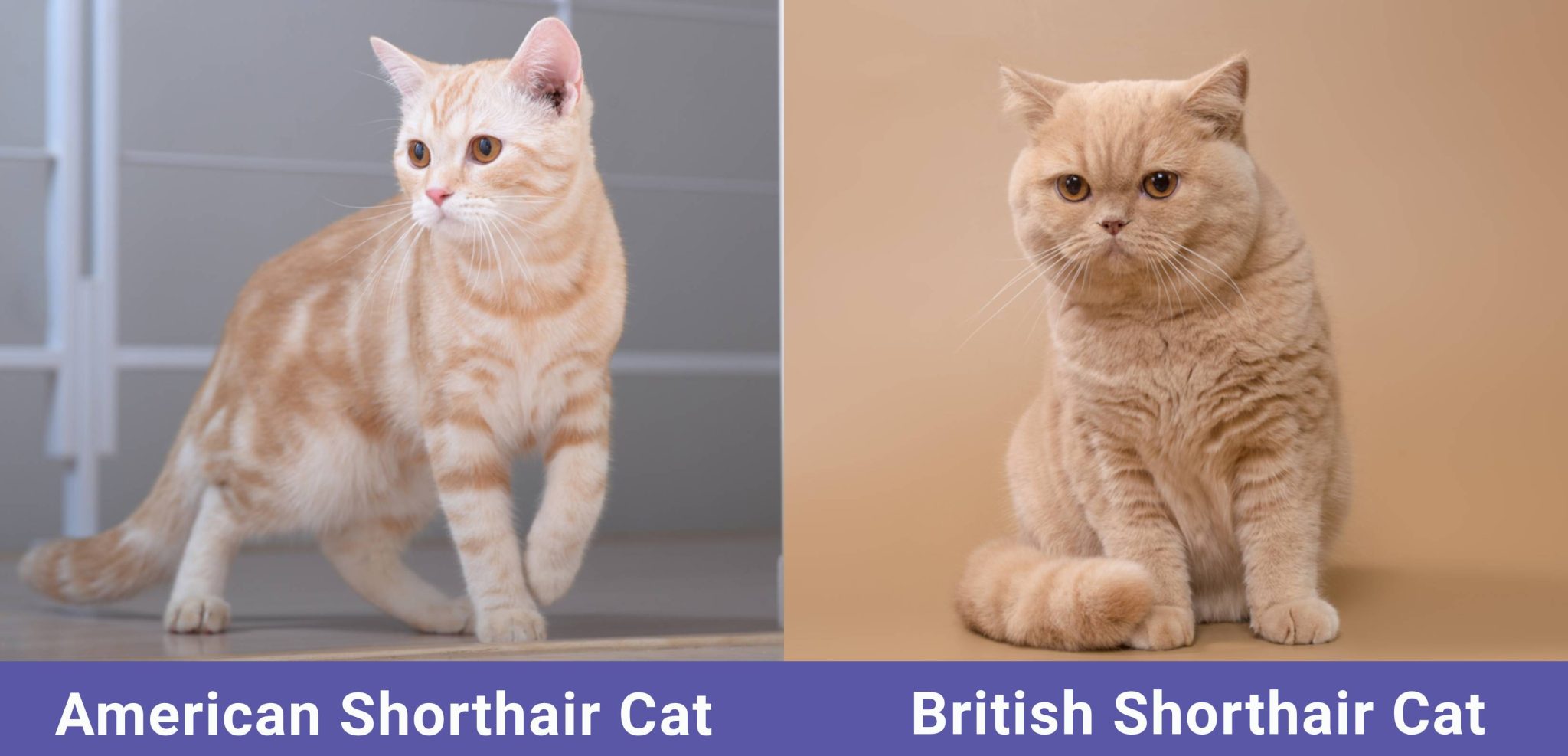
The American and British Shorthair breeds are friendly and make great family cats. They are loving and affectionate, but both breeds prefer to be the ones to initiate contact with their humans. Both cats can be left alone, but if you go out to work all day, the American Shorthair is more tolerant of being left alone for long periods.
The American Shorthair is more tolerant of being picked up and will enjoy the experience of being cuddled far more than their British counterpart, too. Both breeds are healthy and considered hardy, with a life expectancy exceeding 15 years in both cases.
Given the similarities of these cats, it may come down to their appearance when you are choosing your next furry friend. Just know you can’t go wrong with either of these fine felines.
See also:
- Domestic Shorthair vs American Shorthair Cat: Main Differences (With Pictures)
- Male vs. Female British Shorthair: Principal Differences (With Pictures)
Featured Image Credit: Left – Apisit Hrpp, Shutterstock | Right – PHOTOCREO Michal Bednarek, Shutterstock
